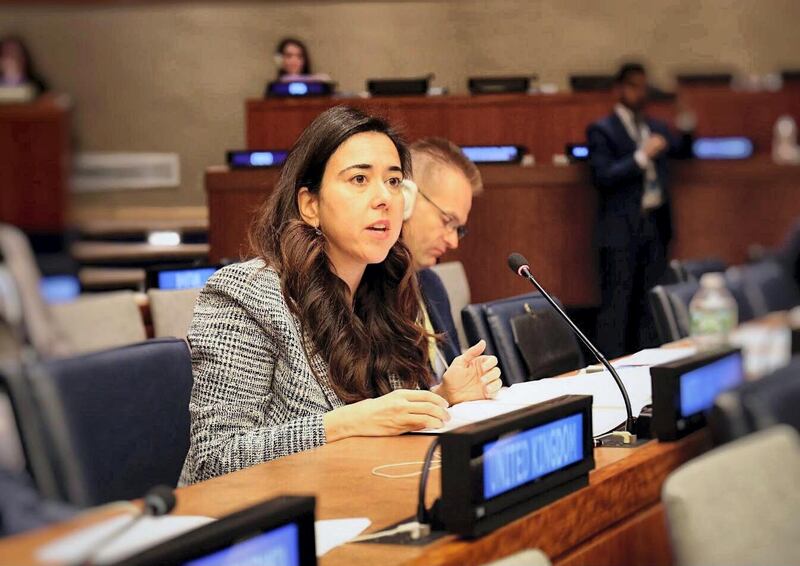The UAE has called for UN member states to abide by nuclear disarmament and international security standards as it reaffirmed its commitment to working towards a world free of weapons of mass destruction.
Ambassador Lana Zaki Nusseibeh, the UAE's Permanent Representative to the United Nations in New York, made the call during a statement to the General Debate of the First Committee of the United Nations General Assembly late on Monday.
She said that, at a time when the world continues to suffer from the use of chemical weapons and nuclear testing, it is vitally important that all UN member states abide by International Atomic Energy Agency standards and demonstrate responsible cooperation in a bid to maintain peace and security.
Multilateral dialogue, Ambassador Nusseibeh said, was crucial to promote disarmament and international security, as she made reference to the UN resolution backing the prohibition of nuclear weapons.
____________
Read more:
[ UN adopts treaty on nuclear weapons ]
[ Kim Jong-un praises nuclear programme, promotes sister to centre of power ]
[ The ambition for a nuclear-free Earth must not blind us to reality ]
____________
“This demonstrated the readiness of the international community to move towards a world free of nuclear weapons and other weapons of mass destruction,” she said, adding that the UAE has adopted a clear and consistent policy on non-proliferation of such weapons.
"We need to ensure that implementation of international agreements on the use of nuclear energy is transparent and conforms with International Atomic Energy Agency standards," she said.
In addition, the ambassador reaffirmed the UAE’s commitment to support dialogue, consultation and all efforts in establishing a zone free of nuclear weapons and other weapons of mass destruction in the Middle East, reported state news agency Wam.
She said that the UAE hopes that further positive steps will be taken to implement the 2010 Treaty on the Non-Proliferation of Nuclear Weapons, which seeks to establish the weapon-free zone in the Middle East, with the participation of all countries in the region.
However, as Israel is the only state in the region not to have signed up to the NPT, Ambassador Nusseibeh reiterated the UAE’s call for the country to do so.
On Iran’s continued nuclear activities and development of its missile programme, Ambassador Nusseibeh said Iran must commit to a transparent and full cooperative relationship with the IAEA to improve confidence that Iran’s nuclear programme is peaceful.
Iran showed no indication of ending its hostile behaviour in the region, she added, nor does it want to abandon its nuclear ambitions, so the UAE backs enhancing controls on Iran’s nuclear programme, with continued assessment of the agreement and its provisions.
The ambassador also called on Iran to ensure full compliance with its international obligations and responsibilities under the NPT and to stop undermining regional security through its support and arms smuggling to militias, in violation of UN Security Council resolutions.
In addition, she said that the UAE condemns the recent nuclear tests conducted by North Korea and called on its leader, Kim Jong-un, to respect his country’s international obligations and act responsibly in order to maintain peace and security in the Korean peninsula.
The Comprehensive Nuclear-Test-Ban Treaty was seen by the UAE as the primary platform for strengthening global efforts on nuclear non-proliferation and disarmament, she said, adding that the country is disappointed that the treaty has not entered into force. Ambassador Nusseibeh called on UN states to sign and ratify the treaty as soon as possible, while also championing the role of women in disarmament and international security discussions. “Increased representation of women in all levels of decision-making in the relevant national, regional and international institutions and mechanisms would assist in effectively addressing the core issues,” she said.







